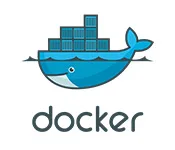I’m trying to setup a project with Mercure. My project is a symfony for 7 version.
In that project, only mercure is setting up with docker, but the rest of the application, like nginx, database or symfony are not in docker. After tring many solution, i was not be able to found out the solution. Actualy with my setup, i get a 404 Not found error (response by nginx and not symfony)> Here is my code:
# - ./docker/db/data:/var/lib/postgresql/data:rw
###< doctrine/doctrine-bundle ###
###> symfony/mercure-bundle ###
mercure:
image: dunglas/mercure
restart: unless-stopped
container_name: flex_mercure
ports:
- "3000:3000"
environment:
SERVER_NAME: ':3000'
MERCURE_PUBLISHER_JWT_KEY: '!ChangeThisMercureHubJWTSecretKey!'
MERCURE_SUBSCRIBER_JWT_KEY: '!ChangeThisMercureHubJWTSecretKey!'
# Set the URL of your Symfony project (without trailing slash!) as value of the cors_origins directive
MERCURE_EXTRA_DIRECTIVES: |
cors_origins https://flex-test.xyz
use_forwarded_headers "1"
# Comment the following line to disable the development mode
#command: /usr/bin/caddy run --config /etc/caddy/Caddyfile.dev
volumes:
- mercure_data:/data
- mercure_config:/config
###< symfony/mercure-bundle ###
volumes:
###> doctrine/doctrine-bundle ###
#database_data:
###< doctrine/doctrine-bundle ###
###> symfony/mercure-bundle ###
mercure_data:
mercure_config:
###< symfony/mercure-bundle ###
My .env
###> symfony/mercure-bundle ###
# See https://symfony.com/doc/current/mercure.html#configuration
# The URL of the Mercure hub, used by the app to publish updates (can be a local URL)
MERCURE_URL=http://127.0.0.1/mercure/.well-known
# The public URL of the Mercure hub, used by the browser to connect
MERCURE_PUBLIC_URL=http://127.0.0.1/mercure/.well-known
# The secret used to sign the JWTs
MERCURE_JWT_SECRET="!ChangeThisMercureHubJWTSecretKey!"
###< symfony/mercure-bundle ###
and my nginx config:
# /etc/nginx/conf.d/example.com.conf
server {
listen 80;
server_name flex-test.xyz;
root /var/www/flex/flex-v2/public;
location / {
# try to serve file directly, fallback to index.php
try_files $uri /index.php$is_args$args;
}
location /mercure/.well-known {
proxy_pass http://127.0.0.1:3000/mercure/.well-known;
proxy_read_timeout 24h;
proxy_http_version 1.1;
proxy_set_header Connection "";
## Be sure to set USE_FORWARDED_HEADERS=1 to allow the hub to use those headers ##
proxy_set_header X-Forwarded-For $proxy_add_x_forwarded_for;
proxy_set_header X-Forwarded-Host $host;
proxy_set_header X-Forwarded-Proto $scheme;
}
location ~ ^/index.php(/|$) {
fastcgi_pass unix:/var/run/php/php8.2-fpm.sock;
fastcgi_split_path_info ^(.+.php)(/.*)$;
include fastcgi_params;
fastcgi_param SCRIPT_FILENAME $realpath_root$fastcgi_script_name;
fastcgi_param DOCUMENT_ROOT $realpath_root;
internal;
}
# optionally disable falling back to PHP script for the asset directories;
# nginx will return a 404 error when files are not found instead of passing the
# request to Symfony (improves performance but Symfony's 404 page is not displayed)
# location /bundles {
# try_files $uri =404;
# }
#location ~ ^/index.php(/|$) {
# when using PHP-FPM as a unix socket
#fastcgi_pass unix:/var/run/php/php8.3-fpm.sock;
# when PHP-FPM is configured to use TCP
# fastcgi_pass 127.0.0.1:9000;
#fastcgi_split_path_info ^(.+.php)(/.*)$;
#include fastcgi_params;
# when PHP-FPM is configured to use TCP
# fastcgi_pass 127.0.0.1:9000;
#fastcgi_split_path_info ^(.+.php)(/.*)$;
#include fastcgi_params;
# optionally set the value of the environment variables used in the application
# fastcgi_param APP_ENV prod;
# fastcgi_param APP_SECRET <app-secret-id>;
# fastcgi_param DATABASE_URL "mysql://db_user:db_pass@host:3306/db_name";
# When you are using symlinks to link the document root to the
# current version of your application, you should pass the real
# application path instead of the path to the symlink to PHP
# FPM.
# Otherwise, PHP's OPcache may not properly detect changes to
# your PHP files (see https://github.com/zendtech/ZendOptimizerPlus/issues/126
# for more information).
# Caveat: When PHP-FPM is hosted on a different machine from nginx
# $realpath_root may not resolve as you expect! In this case try using
# $document_root instead.
#fastcgi_param SCRIPT_FILENAME $realpath_root$fastcgi_script_name;
#fastcgi_param DOCUMENT_ROOT $realpath_root;
# Prevents URIs that include the front controller. This will 404:
# http://example.com/index.php/some-path
# Remove the internal directive to allow URIs like this
#internal;
#}
# return 404 for all other php files not matching the front controller
# this prevents access to other php files you don't want to be accessible.
location ~ .php$ {
return 404;
}
error_log /var/log/nginx/flex_error.log;
access_log /var/log/nginx/flex_access.log;
listen 443 ssl; # managed by Certbot
ssl_certificate /etc/letsencrypt/live/flex-test.xyz/fullchain.pem; # managed by Certbot
ssl_certificate_key /etc/letsencrypt/live/flex-test.xyz/privkey.pem; # managed by Certbot
include /etc/letsencrypt/options-ssl-nginx.conf; # managed by Certbot
ssl_dhparam /etc/letsencrypt/ssl-dhparams.pem; # managed by Certbot
}
server {
if ($host = flex-test.xyz) {
return 301 https://$host$request_uri;
} # managed by Certbot
server_name flex-test.xyz;
listen 80;
return 404; # managed by Certbot
}
Amy idea will be helpfull
I have try changing 127.0.0.1 by the name of my local docker, but Nginx told me that he can not resolve the name. Also, when i try to do a get with the url that is in my Nginx conf "https://flex-test.xyz/mercure/.well-known", i get a 404 error(Not found responding by Nginx itself), and if i do a mistake in that url "https://flex-test.xyz/mercure/{misstakeUrl}" i got a 404 responding by Symfony.

 Question posted in
Question posted in 

2
Answers
I finaly found the solution. The Problem was the url for mercure in my .env and my nginx config. So i would explain. The url using by the mercure hub internaly is /.well-known/mercure, so and other url will not work. That wy in my Nginx config, in the proxy pass, i have use localhost:3000/.well-known/mercure, and the same url in my env (MERCURE_URL = http:://localhost:3000/.well-known/mercure and the public mercure url for the broswer tho connect https://mydomain.xyz/.well-known/mercure) as you can see below:
Nginx
.env config
Docker config
Hope that this answer will help some one else....
You should use the
mercurehost instead of127.0.0.1.env
nginx config